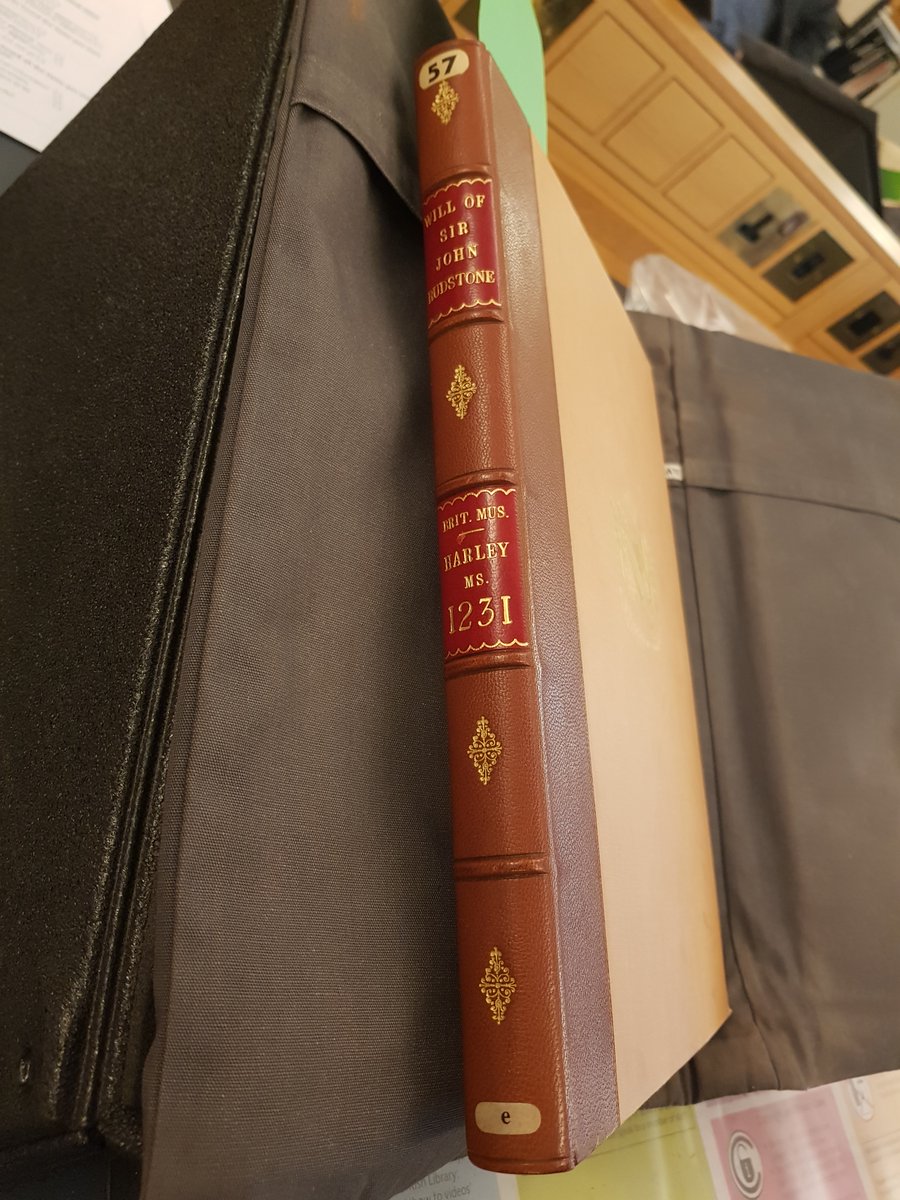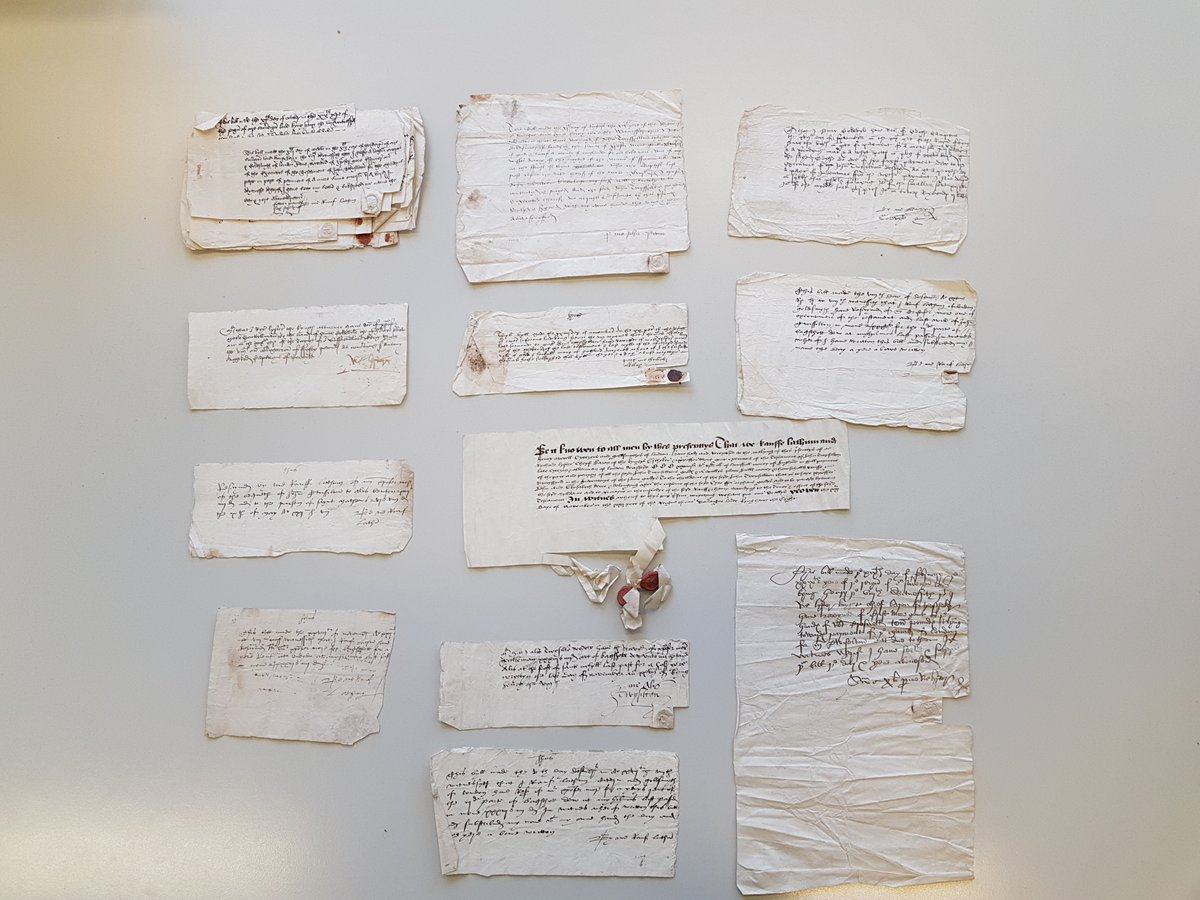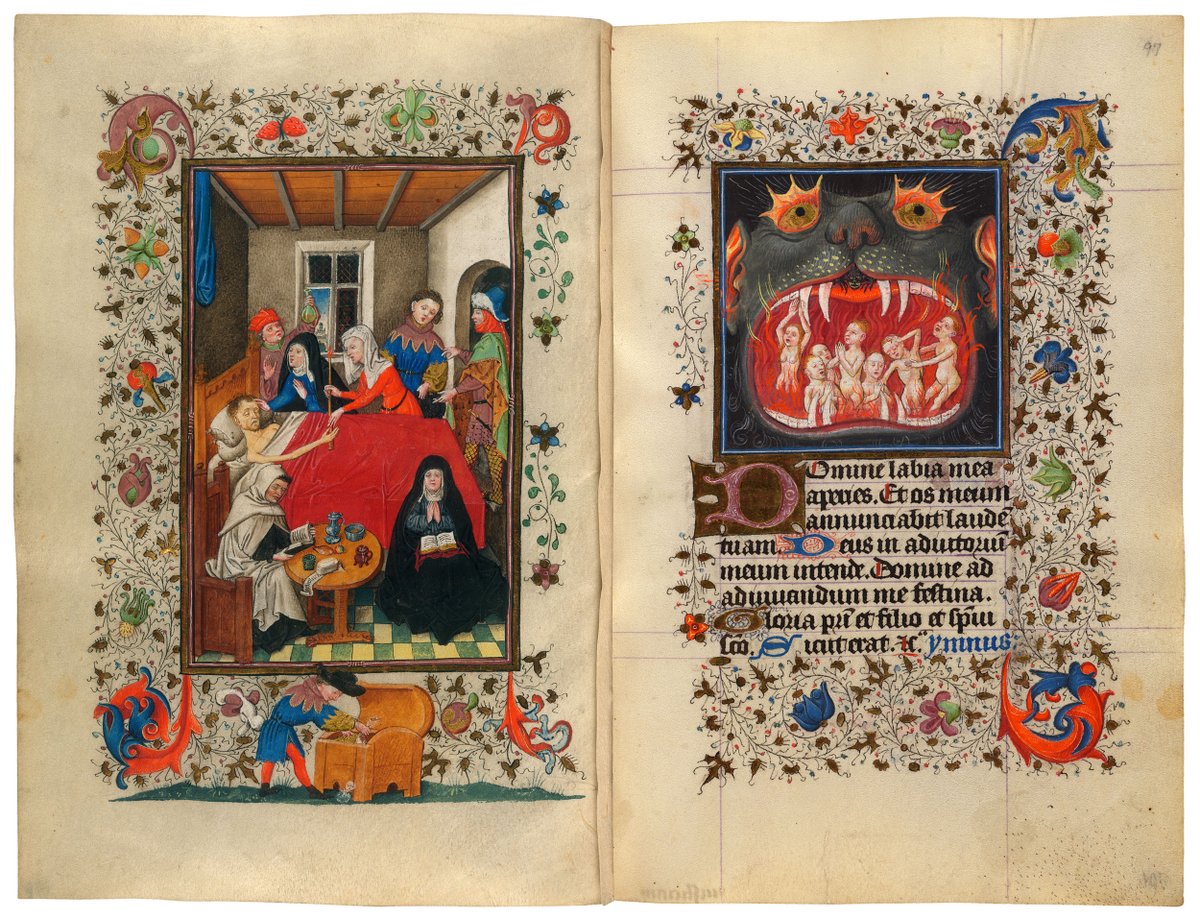We are in the process of shortlisting the many abstracts we received, so we would like to thank everyone for their patience and will hopefully be in touch soon! In the meantime, we thought we'd introduce ourselves and tell you a little about our own research... #twitterstorians
First, my name is Richard ( @RichardAsquith) and I am in the third year of my PhD at @RHULHistory. My research examines piety and trust in late medieval London, specifically focusing on the accounts kept by the executors of last wills and testaments.
These documents are very rare before the Reformation, but the few that survive act as a useful supplement to wills, which are often used by medievalists but have their problems as a source. Pictured here are the accounts relating to Thomas Kneseworth (d.1513)
Wills are endlessly fascinating and useful, but they are inherently prescriptive documents, relating what a testator wished to happen - executors' accounts (in theory) offer a much fuller view of the process of executing a medieval will, verifying info usually omitted from wills.
They often reveal that executors went above and beyond that prescribed by wills, and in the process tell us a great deal about religion, social ties, charity, commemoration, building works, among much else. Pictured is the tomb of Stephen Jenyns, whose accounts survive at Lambeth
The accounts were required by the probate courts, and are just one part of a myriad of documentation that accompanied the execution of a will, much of which has since been lost. Those that do survive therefore do so in a variety of forms, ranging from books to ephemera.
One of the main arguments of my thesis is that, despite the prevalence of an "anti-executor" trope, executors were generally trustworthy and in fact exceeded the impression of their work gained from wills. The trope was satire, and effective because of the importance of their job
So, in summary, my work looks at those "left behind" to carry out the important job of providing for a testator's soul and ensuring that their funeral, legacies, and post obit services were faithfully enacted. I hope to re-evaluate both their role and the sources we use.
Thank you for reading this thread, and I'm looking forward to the wonderful discussions on death that we will be having at #RHULDeathConf!
Tomorrow @dil_lice will be sharing her fascinating research!

 Read on Twitter
Read on Twitter













